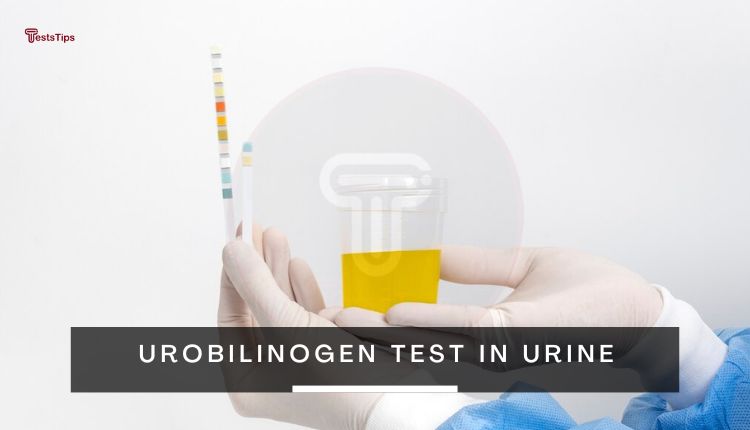What Is Urobilinogen Test In Urine and Why It’s Important?
Learn everything you need to know about the Urobilinogen Test in Urine: what it’s used for, why it’s essential, and how to interpret the results.

Table of Contents
The Urobilinogen Test in Urine is an important diagnostic test that measures the amount of a breakdown byproduct (urobilinogen) in urine. It helps diagnose and monitor conditions related to the liver, kidney, gastrointestinal tract, and more. Understanding the purpose of this type of examination, learning different results and interpretations, and following your healthcare provider’s instructions are beneficial to maintaining overall health.
What is a Urobilinogen in Urine Test?
The Urobilinogen Test in Urine is a chemical test used to measure the amount of urobilinogen, a breakdown byproduct of hemoglobin found in red blood cells, in urine (pee).
Urobilinogen levels can provide important information about how well the liver and kidneys are functioning and are an indication of gastrointestinal diseases or disorders. This type of examination is performed during routine urinalysis. It helps healthcare providers detect, diagnose, treat and monitor conditions or diseases related to these organs and can uncover any symptoms or side effects associated with current treatments.
Urobilinogen is derived from bilirubin. Your body produces bilirubin as part of the normal process of breaking down old red blood cells. Your liver uses bilirubin to make bile into a fluid that helps you digest food in your intestines. Some bile flows directly from the liver through ducts (small tubes) in your intestines. The rest is stored in the gallbladder for emergencies.
Too much urobilinogen in urine can signify liver diseases such as hepatitis, cirrhosis, or certain types of anemia. Little or no urobilinogen may be a sign of Other problems with your liver and gallbladder or bile ducts.
What is it used for?
A urobilinogen test in urine may be part of a urinalysis, which measures different cell chemicals and other substances in the urine. Urinalysis is usually done to check your general health. It can also aid in the diagnosis of liver diseases and a variety of other medical conditions.
Why do I need urobilinogen test in urine?
Your healthcare provider may order this test as part of your regular checkups or to monitor an existing liver condition. You may also have this test if you have symptoms of liver disease or hemolytic anemia.
Symptoms of liver disease may include:
- Jaundice Conditions that cause your skin and eyes to turn yellow
- Swelling and/or pain in your abdomen (belly)
- Swelling in your ankles and legs
- Dark urine and/or pale colored stools
- Nausea and vomiting
- Lack of appetite
- Fatigue
- Weakness
- Frequent itching
Symptoms of hemolytic anemia may include:
- Fatigue
- Dizziness
- Palpitations (feeling that the heart is pounding, throbbing, or beating too hard or too fast)
- Headache
- Confusion
- Jaundice
- Larger than normal liver or spleen
“Related: ANCA Test; Anti neutrophil cytoplasmic antibodies“
What happens during urobilinogen in urine test?
sa
You will need to provide a urine sample for testing. A healthcare professional may give you cleaning wipes and a small container with instructions on how to collect a urine sample using the clean collection method. Be sure to follow these instructions to keep bacteria from growing on your skin Enter the sample:
- Wash hands with soap and water and dry.
- Open container without touching inside.
- Pee into the toilet for a few seconds, then stop the flow. Start urinating into the container again this time. Do not allow container to touch your body.
- Put at least one or two ounces of pee in a container. The container should be marked to show how much urine is needed.
- Finish urinating into the toilet.
- Put the lid on the container and return it according to the instructions.
Is there anything I need to do to prepare for the exam?
You don’t need any special preparation. If your provider orders other urine or blood tests, you may need to fast (not eat or drink) for several hours before the test.
What do the results mean?
If your test results show that you have too little or no urobilinogen in your urine, these could be signs:
- blockage in the tube that carries bile from the liver or gallbladder to the intestine
- blood flow through the liver is blocked
- A problem with liver function
If your test results show that your urobilinogen level is higher than normal, it could be a sign of:
- Hepatitis
- Cirrhosis
- Liver damage due to medicines
- Hemolytic anemia
If your test results are abnormal, it doesn’t always mean you have a medical condition that requires treatment. Certain medications and supplements can affect your results, so be sure to let your provider know what you are taking.
